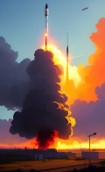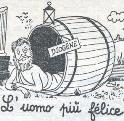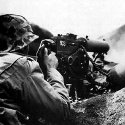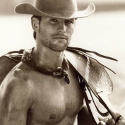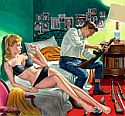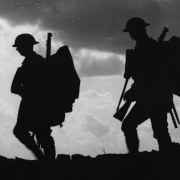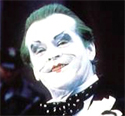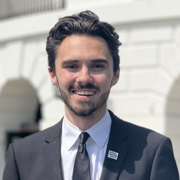|
  SAMs ITT.
|
|
|
|

|
| # ? May 22, 2024 13:56 |
|

|
|
|
|

|
|
|
|
Smiling Jack posted:Apropos of nothing whatsoever here is a picture of an overrated plane that was canceled, leaving behind nothing but legions of fanboys who gaze upon its negligible impact and history with the desperate rose-tinted lenses of nostalgia. If we're going that route (click for fullsize):   
|
|
|
|
VikingSkull posted:Even mortally wounded, that Valkyrie looked fantastic. Too soon?
|
|
|
|
Pfff, no one says F-5s and their derivatives are good, just that they're beautiful
|
|
|
|

|
|
|
|

|
|
|
|
VikingSkull posted:Project Excelsior was the coolest
|
|
|
|
atomicthumbs posted:Project Excelsior was the coolest Now open the blinds and fall out of your little bucket, and remember to open your drogue chute so you don't spin at 150rpm. Hope you like falling for 13 minutes.
|
|
|
Boomerjinks posted:Now open the blinds and fall out of your little bucket, and remember to open your drogue chute so you don't spin at 150rpm. Hope you like falling for 13 minutes. 
|
|
|
|
|
Smiling Jack posted:Actually that was pretty clever. Well this is you, specifically.  I've been jonesing for tales from Hustler drivers. Everyone knows about stuff like bear ejection seats and smuggling booze from Europe in the lower pod, but for an operational Cold War aircraft it really seems to be lacking in the "visible, robust history" department, at least to me... Does anyone have any sites, videos, or books they can recommend?
|
|
|
|
Boomerjinks posted:Now open the blinds and fall out of your little bucket, and remember to open your drogue chute so you don't spin at 150rpm. Hope you like falling for 13 minutes. 
|
|
|
|
 
|
|
|
|

|
|
|
|

|
|
|
|
VikingSkull posted:That man had the biggest balls ever grown. I remember watching a documentary about him, and had some interviews with him when he was old. He seemed like a really awesome old guy, who had to have the best goddamn stories ever. "Oh, you climbed Everest? Lemme tell ya about the time I parachuted from space."
|
|
|
|
Not to mention, he lied about a glove not pressurizing properly so they wouldn't abort his jump, and made the jump from space with an unpressurized glove. His hand blew up to twice its size, but he wasn't about to let a little thing like that prevent the ultimate high jump.
|
|
|
|
This guy has bigger balls than Kittinger. Barely, though. Neither can sit down properly.
|
|
|
|
Fortunately, the inflatable donut seat cushion is standard issue for all test pilots. Seriously, that's a special kind of ballsy.
|
|
|
|
Kittinger is still alive, AFAIK.. Last I heard he was advising a dude who was going to attempt to break his free fall record, jumping from 120k feet. Sadly it was tied up in court between Red Bull who are sponsoring it and some promoter guy. The video for Boards of Canada's tune "Dayvan Cowboy" has the jump set to music and it's pretty cool. I don't think Kittinger landed in the ocean and immediately began surfing though, so the video plays a little fast and loose with the facts  https://www.youtube.com/watch?v=A2zKARkpDW4
|
|
|
|
priznat posted:Kittinger is still alive, AFAIK.. Last I heard he was advising a dude who was going to attempt to break his free fall record, jumping from 120k feet. Sadly it was tied up in court between Red Bull who are sponsoring it and some promoter guy. Kittinger flies hot air balloons now. Dude is truly awesome.
|
|
|
|
Smiling Jack posted:Apropos of nothing whatsoever here is a picture of an overrated plane that was canceled, leaving behind nothing but legions of fanboys who gaze upon its negligible impact and history with the desperate rose-tinted lenses of nostalgia. Older RCAF paint schemes always made everything look like an airliner.
|
|
|
|
In Retrospect: The Tragedy and Lessons of Vietnam, by Robert S. McNamara (with Brian VanDeMark). The edition I have and am taking excerpts from was published 1996 by Vintage Books in New York. Part One: Preface to the Vintage Edition, [original] Preface, and Chapter 1 The preface to this edition is a short piece from McNamara about the reactions people had to the book's first run of publication. In particular he reproduces three particularly notable comments on the book: McNamara posted:-Anne Morrison Welsh, the widow of Norman Morrison, the Quaker who burned himself to death beneath my Pentagon window, on November 2, 1965, wrote: "To heal the wounds of the war, we must forgive ourselves and each other, nd help the people of Vietnam to rebuild their country. I am grateful to Robert McNamara for his courageous and honest reappraisal of the Vietnam war and his involvement in it. I hope his book will contribute to the healing process." Then comes the original preface, in which he discusses his motivations and thinking behind writing the book. I'll try to summarize: Despite being "young, vigorous, intelligent, well-meaning patriotic servants of the United States", McNamara and those he worked with in the Kennedy and Johnson administrations made a series of errors that caused the Vietnam War. Despite those mistakes, however, he believes that they performed their duties to the best of their abilities, "They have made mistakes, but mostly honest mistakes." quote:I want to put Vietnam in context. quote:I want Americans to understand why we made the mistakes we did, and to learn from them. I hope to say, "Here is something we can take away from Vietnam that is constructive and applicable to the world of today and tomorrow." That is the only way our nation can ever hope to leave the past behind. The ancient Greek dramatist Aeschylus wrote, "The reward of suffering is experience." Let this be the lasting legacy of Vietnam. My Journey to Washington The book proper then begins with a quick summary of his life up to January 21, 1961, when he was sworn in as the nation's Secretary of Defense. quote:The day after John F. Kennedy's inauguration was among the proudest of my life. At four o'clock that afternoon, January 21, 1961, I gathered with my nine fellow cabinet nominees in the East Room of the White House to be sworn in. We stood in a semicircle beneath the crystal chandelier facing Chief Justice Earl Warren in his black robes. I took my oath office in unison with the others s President and Mrs. Kennedy, congressional leaders, and our families watched. Then the president stepped forward to congratulate us. He then describes his life up to that point: born in 1916, graduating from high school in 1933 and working on a freighter in the summers to pay for his tuition at Berkeley, meeting Margaret Craig, who he would later marry, doing Army ROTC (as was required at public colleges of the time), and then going to Harvard Business school. He graduated from Harvard in 1939 and the next year was asked to return as a member of the faculty. In early 1942 Harvard signs a contract with the Army Air Corps to train "statistical control officers" and McNamara ends up as a civilian consultant for the Defense Department. They then give him an officer's commission and send him to England to work directly with the Eighth Air Force. Over the course of the war he works in both theaters and helps establish a system of statistical control aimed at increasing the efficiency of strategic bombing. After coming back from the war his former CO, Tex Thornton, calls him up and asks him to join him and a group of other former statistical officers and go work for Ford Motor Company. They became the "Whiz Kids." quote:The company was a pretty rough place. John [Bugas] later told a story about Harry Bennett, a navy prizefighter who had also started as the [Ford] children's bodyguard but had risen in power to where he had a big office in the basement of the main administration building. But that did not change his style. He liked to keep a loaded gun in his desk drawer and, somtimes, when a visitor came to see him, he would shoot into the wall over the visitor's shoulder. Harry Bennett is a mildly notable historical figure in his own right for being the guy Ford used to send to beat up union executives during the Depression. I read another source mentioning the gun in question as an air pistol. The Whiz Kids are wildly successful at Ford and in the summer of 1960 Henry Ford II asks McNamara to become president of the company. McNamara becomes the first non-Ford to hold the office. quote:On Thursday, December 8, 1960, seven weeks after I became president of Ford, I left my home in Ann Arbor early in the morning to drive to my office in Dearborn. I made a stop at the River Rouge Plant on the way, and when I finally reached headquarters at about 10:30 A.M., my secretary, Virginia Marshall, handed me a long list of phone messages. I had directed her to force me to return every call that came in--including complaints--so, without looking at the list, I handed it back and said, "Start down it." So McNamara goes and meets with Kennedy. A lot of the anecdotes he shares about his dealings with Kennedy have to do with McNamara having little experience with pretty much everything but statistics and business. When Kennedy asks him in person to be the secretary of defense, he says again that he's not qualified. Kennedy asks "who is?"--meaning it as a rhetorical question--and McNamara takes it literally and suggests Thomas Gates, then the current defense secretary. They discuss it a bit more and agree to meet again that Monday. He goes back to his family and talks to his family about taking the job and they agree that he should. He has two conditions: he gets to staff the department with whoever he wants, and it's understood that he won't be an active participant in the Washington social circle. He goes back to Kennedy and puts these to him, and they walk out of his house to where the press are camped out and announce that McNamara will be taking the job. McNamara then starts searching for people to fill his staff with, running down old friends from the Army or guys he's worked with at Ford. He takes the job and, despite some initial stumbles with the press (the rest of the chapter is pretty much McNamara talking about times his political inexperience tripped him up or made him sound stupid) starts running the Department. Next: The Early Years, January 19, 1961-August 23, 1963
|
|
|
|
Re: the discussion of McNamara and Fog of War up thread, I would concur with the observation that it is a very good documentary, that McNamara seemed extremely troubled regarding his participation in the firebombing of Japan, and that McNamara does come off as a pretty sympathetic figure, although that doesn't make him less of a loving moron (along with all the other whiz kids). IMHO, their primary downfall was that they thought that they could use the same basic techniques/line of thinking that they (successfully) used for dealing with the Soviet Union during the Cuban Missile Crisis in dealing with a shooting war in Vietnam, completely ignoring the vast differences between the two events, both culturally and geo-politically. Also the TFX was pretty much the worst loving procurement idea ever and the fact that we are literally reliving it would be loving hilarious if the worst case outcome didn't mean the death of U.S. tacair. To paraphrase Bill Sweetman, "The new U.S. joint air combat fighter is in trouble. It is overbudget, behind schedule, and underperforming. The Navy has indicated they might drop out and instead go with a manufacturer with a proven record of making naval fighters. But enough about the F-111, let's talk about the JSF." Re: the F-20, I think there are some parallels to be drawn there between it and the Gripen, with the national level support for the Gripen being one of the key differences. mlmp08 posted:Hey bro, you lowered the landing gear, right? ......uhhh joat mon posted:This story is great. Cross posting from the AI thread regarding that TP shell... quote:The blue means it is some sort of inert TP round...as far as shape, distinguishing features, etc. it looks about right to be a PGU-15/B round (what it would be if it was A-10/GAU-8 TP) but that 2.5 cm would indicate that it is for a gun in 25mm, like someone in the TFR thread said, so that would be my professional assessment: 25mm TP, for the GAU-12 or Bushmaster cannon or the like. If I had some more experience with 25mm or 30mm I could probably give you a better answer, but my only personal experience is with the 20mm ammo for the Vulcan. And the "let's read" of the McNamara book is great...please continue.
|
|
|
|
joat mon posted:For those of you who don't know this story: http://www.gallagher.com/ejection_seat/
|
|
|
|
Iyaayas, I think one of the points McNamara tried to make in the documentary (and we'll get to his written treatment of it in the next chapter) was that they didn't approach the two situations the same way and that that was a problem. The peaceful resolution of the Cuban Missile Crisis required them to understand what their opponent (the Soviet Union) was thinking. They never properly understood the Vietnamese.
|
|
|
|
That's probably a fair point to some degree, and I will fully admit that the following is a somewhat simplistic and incomplete line of reasoning (as there are so many things wrong with Vietnam that it is impossible to just attribute it to one single source; also the military itself bears a significant portion of the blame) but my thought process was focusing in on comparing the air war over North Vietnam during Rolling Thunder to the various responses to the Cuban Missile Crisis as far as posturing forces, deploying a blockade, etc. In the case of the Cuban Missile Crisis McNamara/the rest of the political leadership maintained a tight hold on the military's actions, carefully calibrating the various actions to anticipated Soviet responses, which is exactly what you should do when engaging in brinksmanship with a nuclear armed superpower, doubly so when you have guys like Curtis LeMay running the military. However, maintaining the same level of tight control over military action while fighting a conventional shooting conflict gets you, well...the disaster that was Rolling Thunder. e: On second thought, I think we're just saying the same thing in different ways, as you could argue that the reason they used the same level of tight control over military action was that they didn't fully understand the type of war they were fighting or their opponent.
|
|
|
|
McNamara totally deserves the criticism he gets, and I think he understood that and was ok with it at the end. He gets some respect from me though because he's one of the only politicians I can think of that ended up admitting he hosed up royally, and was vocal about it in the hopes that it doesn't happen again. Of course it did with Iraq, but at least he tried. The part of Fog of War where he discusses the firebombing of Japan is what turned my opinion of him. He wasn't just upset about his role, he came off as tortured by it. Being an atheist I don't believe in Hell, so if he deserved to go there I think the last part of his life was it.
|
|
|
|
VikingSkull posted:McNamara totally deserves the criticism he gets, and I think he understood that and was ok with it at the end. He gets some respect from me though because he's one of the only politicians I can think of that ended up admitting he hosed up royally, and was vocal about it in the hopes that it doesn't happen again. Of course it did with Iraq, but at least he tried. Verily. It's been a few years since I've seen Fog of War, but I remember McNamara being not just remorseful, but thoroughly broken by regret. iyaayas - I think the problem with Rolling Thunder wasn't so much the fact that it was micromanaged, but that it was based on the flawed conception that the enemy's will to fight could be broken by strategic bombing. I don't deny that it was poorly executed and managed, but the problem was on a more basic, conceptual level. Does that sound right? If anyone should have understood this, it was McNamara, since he oversaw the virtual annihilation of Japanese cities from the air, only to see Japan continue in its defiance.
|
|
|
|
Also, if you're going to have a bombing campaign of that scale, you need to go the whole way and not restrict what you are bombing. I mean, at a point you've already crossed a threshold of what is morally acceptable. The air war in Vietnam was so hosed up and pointless it's almost unbelievable. They probably could have done more with less if it was a more focused effort less politically driven, but I'm not sure I'm going to step off that ledge and advocate that there wasn't enough bombing in the war because clearly there was too much. My uncle did some of the cross border stuff in Laos and he said it was hell to get CAS in some instances due to political concerns. I mean gently caress, you have boots on the ground! If you're worried about political ramifications, why did you send them there at all? e- here's the part where McNamara discusses the firebombing just in case anyone wants to see it without watching the whole documentary. Keep in mind that when he refers to LeMay going on to firebombing other cities, a big reason behind that was the mathematics provided by McNamara and his team. Seizure Meat fucked around with this message at 16:11 on Jan 12, 2012 |
|
|
|
The Early Years: January 19, 1961 - August 23, 1963quote:The beginnings of all things are small, and the story of my involvement with Vietnam is no different. When John F. Kennedy became president, we faced a complex and growing crisis in Southeast Asia with sparse knowledge, scant experience, and simplistic assumptions. As time passed, we came to recognize that the problems plaguing South Vietnam and its embattled leader, Ngo Dinh Diem, were far more complicated than we had initially perceived. And we remained divided over how to deal with them. quote:Like most Americans, I saw Communism as monolithic. I believed the Soviets and Chinese were cooperating in trying to extend their hegemony. In hindsight, of course, it is clear that they had no unified strategy after the late 1950s. But their split grew slowly and only gradually became apparent. At the time, Communism still seemed on the march. Mao Zedong and his followers had controlled China since 1949 and had fought with North Korea against the West; Nikita Khrushchev had predicted Communist victory through "wars of national liberation" in the Third World and had told the West, "We will bury you." His threat gained credulity when the USSR launched Sputnik in 1957, demonstrating its lead in space technology. The next year Khrushchev started turning up the heat on West Berlin. And now Castro had turned Cuba into a Communist beachhead in our hemisphere. We felt beset and at risk. This fear underlay our involvement in Vietnam. quote:It seemed obvious that the Communist movement in Vietnam was closely related to guerrilla insurgencies in Burma, Indonesia, Malaya, and the Philippines during the 1950s. We viewed these conflicts not as nationalistic movements--as they largely appear in hindsight--but as signs of a unified Communist drive for hegemony in Asia. This way of thinking had led Dean Acheson, President Truman's secretary of state, to call Ho Chi Minh "the mortal enemy of native independence in Indochina." quote:Two developments after I became secretary of defense reinforced my way of thinking about Vietnam: the intensification of relations between Cuba and the Soviets, and a new wve of Soviet provocations in Berlin. Both seemed to underscore the aggressive intent of Communist policy. In that context, the danger of Vietnam's loss and, through falling dominoes, the loss of all Southeast Asia made it seemed reasonable to consider expanding the U.S. effort in Vietnam. One of the problems he identifies when it came to the government properly understanding the people it faced was that while there were plenty of people in the departments of State and Defense who had extensive working experience with the Soviets and understood how they thought, there was nobody McNamara could ask about Asia. quote:The irony of this gap was that it existed largely because the top East Asian and China experts in the State Department--John Paton Davies, Jr., John Stewart Service, and John Carter Vincent--had been purged during the McCarthy hysteria of the 1950s. Without men like these to provide sophisticated, nuanced insights, we--certainly I--badly misread China's objectives nd mistook its bellicose rhetoric to imply a drive for regional hegemony. We also totally underestimated the nationalist aspect of Ho Chi Minh's movement. We saw him first as a Communist and only second as a Vietnamese nationalist. These all come from the first few pages of the chapter. McNamara writes in a very straightforward manner, so it can get pretty dense with information in parts and much of it is important. The next part of the chapter is a discussion of memos sent back and forth and meetings held with the President and the National Security Council in which the government essentially fails to establish a coherent approach to Vietnam. I can dig out more quotes for any clarification necessary, or any additional questions anyone has, but I'm trying to keep to the broader discussions and only include stuff on inner government functioning when it becomes particularly significant. quote:In spite of the incoherence of our approach to South Vietnam during those early months, many of us--including the President and me--came to believe that the problem was such that only the South Vietnmese could deal with it. We could try to help them through training and logistical support, but we could not fight their war. That was our view then. Had we held to it, the whole history of the period would have been different. quote:Vietnam was far from the biggest problem in those early months of 1962 as we continued to get then Defense Department into shape. But unlike many issues that I delegated to Ros Gilpatric, I increasingly made Vietnam my personal responsibility. That was only right: it was the one place where Americans were in a shooting war, albeit as advisers. I felt a very heavy responsibility for it, and I got involved as deeply as I felt I could and be effective. That is what ultimately led people to call Vietnam McNamara's War. A lack of understanding of even the government they were trying to work with is another problem McNamara identifies. Part of the difficulties come from Diem's brother Ngo Dinh Nhu and Nhu's wife (Tran Le Xuan, commonly referred to as simply Madame Nhu), who acted as autocratic influences on Diem. At this time, the war is by all appearances going quite well. There are 16,000 American military advisors in Vietnam whose primary duty is training South Vietnamese troops in counterinsurgency work. Reports coming in suggest that the South Vietnamese army is performing well in the field and that the Viet Cong could be defeated solely by concerted effort from South Vietnamese troops. These appearances were, it turned out, totally incorrect. quote:Why were my comments about the political system in South Vietnam realistic while, in retrospect, those about military progress were overly optimistic? There's a bit in between these so when he says "next meeting" in a bit he doesn't mean next after that one in 7/1962 quote:At my next meeting with General Harkins, in Honolulu on May 6, 1963, he told me we were continuing to make progress in the war. I therefore directed the military to prepare a plan for phasing out U.S. forces beginning with the withdrawal of 1,000 advisers by year's end.
|
|
|
|
While we're on the entangled subjects of Vietnam and American policy failure, can anyone comment on the reliability of Stan Goff? I read Full Spectrum Disorder several years ago, but I don't remember it terribly well and now I'm wondering if it's worth a second look.
|
|
|
|
Myoclonic Jerk posted:iyaayas - I think the problem with Rolling Thunder wasn't so much the fact that it was micromanaged, but that it was based on the flawed conception that the enemy's will to fight could be broken by strategic bombing. I don't deny that it was poorly executed and managed, but the problem was on a more basic, conceptual level. Does that sound right? Ehh....sort of. You raise a valid point as far as how successful (or not) strategic bombing would have been at convincing a country to stop supporting an insurgency in a neighboring country, but I really can't emphasize enough just how hosed up the conceptual strategic level thinking behind Rolling Thunder was, much less the operational level planning and targeting. At the strategic level the thought process of "gradulism" had U.S. forces striking insignificant targets because holding the more significant targets "hostage" was considered more of a "threat" and able to force better behavior from the North Vietnamese than actually destroying those targets. This goes back to what I was saying earlier at nuclear brinksmanship vs a conventional shooting war...that is nuclear deterrence style thinking, and while it works great there, not so much in a dirty conventional shooting war. At the operational level you had so many drat restrictions that it would be comical if people weren't dying: engaging in an air campaign without actually targeting the enemy's airfields, engaging in an air campaign with very strict restrictions against striking ground based air defenses, and engaging in an air campaign intended to interdict the flow of supplies without mining the enemy's ports and, for most of the campaign, refusing to drop bridges and road/rail links between North Vietnam and China. That's not to say that there weren't plenty of issues on the military side as well...tactically U.S. forces sucked at employment, to be blunt, and operationally the chain of command/lines of communication were a tangled clusterfuck between MACV, 7th AF, 7th/13th AF, CINPAC, PACAF, and TF77. If we used the same thought process during the air war in Desert Storm we wouldn't have gone downtown to Baghdad ever, we would've spent most of our time bombing "suspected bomb dumps" in the middle of the desert along with "suspected truck parks" in the swamps in southern Iraq, we wouldn't have touched Iraqi air defenses, and the Navy would have just been doing their own thing from the carriers. I mean, Instant Thunder (the initial name for the air campaign during Desert Storm) wasn't chosen at random...there's a reason we have things like the JIPTL (Joint Integrated Prioritized Target List) and MAAP (Master Air Attack Plan) now, just like there's a reason we have Fighter Weapons School (now NSAWC I guess) and Red Flag, and just like there is a reason the C/JFACC runs the air war. e: I guess what I'm saying is that while there were conceptual issues making the campaign questionable in the first place, it was outright criminal to wage the campaign in the way it was done. If you are going to try to interdict the flow of supplies, you do it as close to the source as you can (in this case by mining ports, dropping road/rail links between North Vietnam and China, and targeting natural choke points as close to China as possible), not by indiscriminately bombing a wide swath of land in an attempt as was done in the effort to interdict the Ho Chi Minh trail. The second option not only risks U.S. personnel for little to no gain but it exposes a far greater number of civilians to violence. iyaayas01 fucked around with this message at 15:59 on Jan 13, 2012 |
|
|
|
poo poo, the US stayed away from the massive POL reserves on the coast because the Russians were docked there. we hit them eventually and it made a noticeable impact, but by then it was a moot point anyway. Then there's the "let's use the same attack approach every time we enter the North" aspect that's loving idiotic, and that mentality stayed the same until that F-117 got whacked in Bosnia.
|
|
|
|
VikingSkull posted:Then there's the "let's use the same attack approach every time we enter the North" aspect that's loving idiotic, and that mentality stayed the same until that F-117 got whacked in Bosnia. I recall reading at some point a post-war interview with the commander of the air defense unit that brought down the F-117 where he talked about how he and his unit pulled it off. It was really interesting and informative. I will Google around a little, but if anyone has a link convenient, they should post it - I'd love to read it again and I'm sure others would find it interesting as well. Edit: Well it took like 30 seconds to find something. I don't know if this is the full article though or if there's more info from him floating around. http://www.strategypage.com/htmw/htada/articles/20051121.aspx
|
|
|
|
mlmp08 posted:This wasn't all that long ago. So this is technically well after the cold war. 
|
|
|
|
This came in the mail a few days ago:  Thanks to this thread, it's a great read so far!
|
|
|
|
Ruse posted:This came in the mail a few days ago: Wow, I saw this guy speak back in 1999 with my old Civil Air Patrol unit at March AFB in SoCal. Dude had some crazy stories, including flying donuts high above North Korea during some high-level summit between Kim il-Sung and whoever the Soviet premier was at the time. Great lecturer!
|
|
|
|

|
| # ? May 22, 2024 13:56 |
|
A few of the ejector seat pictures on page 53 make it look like the seats are self-righting; the planes appear to be banking hard to one direction or the other while the seat is upright. Is this so? I figured they had systems, rockets, for getting the pilot to an altitude adequate for a parachute to deploy, but I don't know if there's more to the seat than that.
|
|
|

